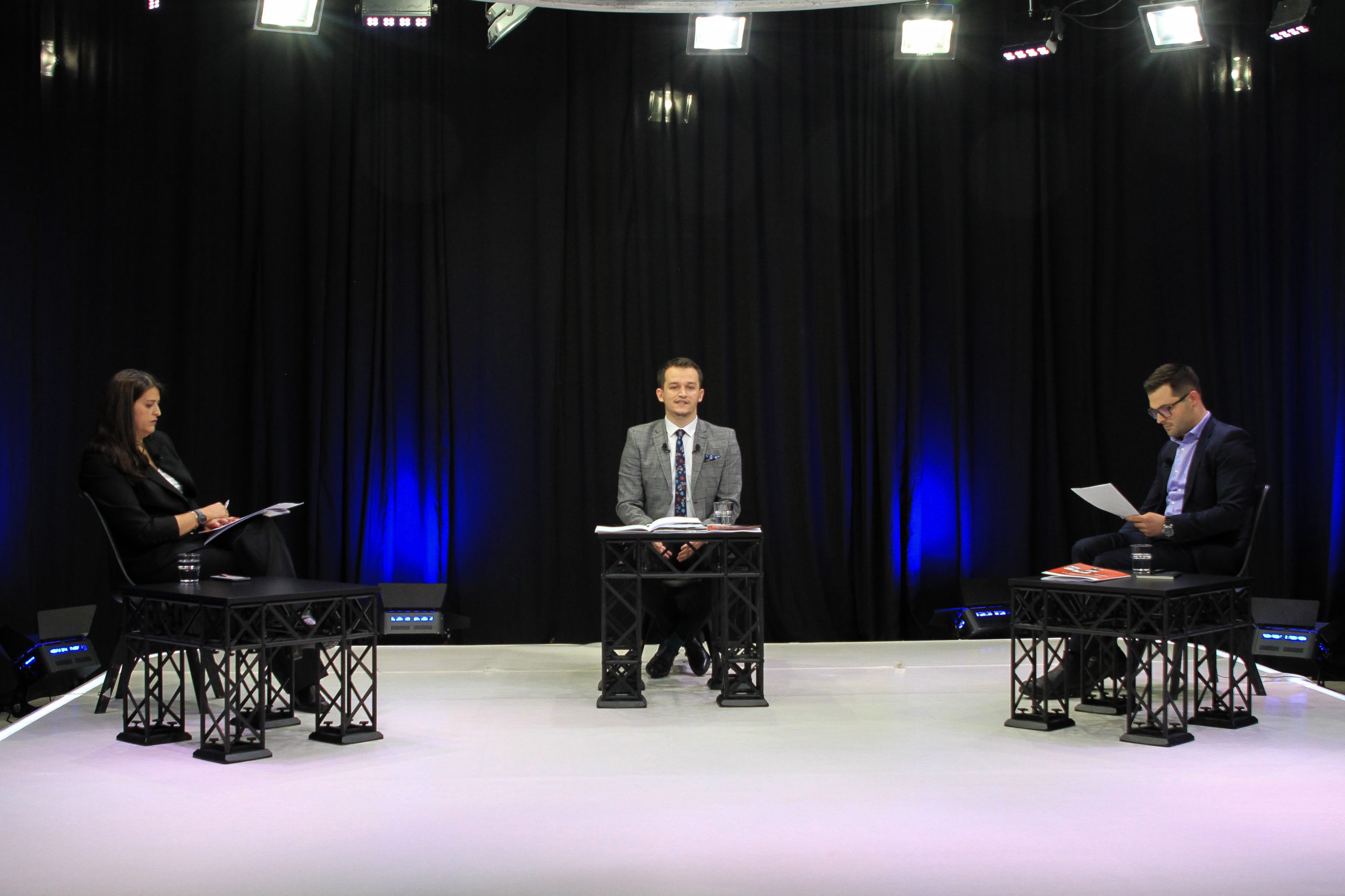Today, the network of local election observation organizations “Democracy in Action” (DiA), published the final reports regarding the evaluation of the early parliamentary elections of February 14.
Eugen Cakolli from DiA, assessed that the elections were conducted in accordance with democratic standards for free and fair elections. “An exception to this qualification is voting in Serb-majority municipalities, where orchestrated voting for two political entities from the ranks of communities has been identified, as well as unusual turnout of voters in elections up to 85%.” added Cakolli.
Election day was assessed as smooth, without any incidents that could affect the integrity of the election process. Although the voting process was regular, it was said to be characterized by some recurring problems from previous election cycles, as well as unsatisfactory levels of compliance with anti-COVID measures.
The process of counting the votes, especially of the candidates of political entities, was considered as one of the main problems of the electoral process. The involvement of persons suspected of criminal offenses of falsification and manipulation of election results in the CRC, proven through the publication of a video recording, was said to have diminished the credibility of this process. Regarding the recounts, it was emphasized that although the number of recounted polling stations is significantly lower than in the 2019 elections, again, the recount of about 700 ballot boxes or 29% of the total number of polling stations, followed by the repetition of the count conditional and postal voting for a political entity, reveals the deep politicization and lack of integrity among some commissioners and CRC staff.
Although the work of the CEC was assessed as transparent, the fact was emphasized that unlike previous processes, in these elections the work of the CEC was accompanied by polarization and verbal clashes between CEC members. Also, the work and independence of the CEC were said to have been violated by external interventions. Whereas, the Chairwoman of the CEC has been the target of numerous attacks by the Self-Determination Movement, but also by other parties.
The voting operation abroad and the process of certification of political entities and their candidates were considered as the two most sensitive and problematic links of these elections. Whereas, the institutions responsible for handling complaints and appeals related to the elections, were considered to have acted professionally and impartially in handling complaints and appeals, respecting all legal deadlines.
On the other hand, DiA also launched a report on monitoring the election campaign, the findings of which were presented by Visar Xhambazi from DiA. The main assessment of this report is that the election campaign was smooth and without any serious incidents. While, it was emphasized that a significant part of the events organized by political entities were not reported to the relevant institutions (MEC). “The most common activity during the campaign were visits to citizens, door-to-door and visits to certain institutions. “These activities were accompanied by large gatherings of citizens, not respecting the rules for physical distance and wearing masks properly.” said Xhambazi.
Also, the campaign was said to have been characterized by low participation of women in election campaign events as participants and as speakers. Further, this campaign was characterized by elements of hate speech. Providing access to people with disabilities to facilities where political entities have conducted election campaign activities remains a problem. Meanwhile, no obstacles were reported for the media and civil society organizations to observe and follow the campaign activities.
In the framework of this report it was said that a list of recommendations is included which are based on the findings of the election campaign observation. These recommendations aim at improving the conduct of the election campaign, respecting the legal provisions in force, as well as creating more favorable conditions for marginalized groups.
DiA also published findings from media monitoring during the campaign period. Mexhide Demolli-Nimani from DiA, stated that during the official election campaign (3 – 12 February 2021), the coverage of the activities of certified political entities in their appearances on national televisions, including election chronicles and commercials, broadcast rallies were monitored live and livestreams from portals. In these elections, DiA also monitored the activities of political entities and candidates for prime minister on Facebook, through the SentiOne platform.
Demolli-Nimani stated that the main findings from the monitoring show that the monitored televisions were dominated by large political entities which had space in both election news and televised debates. The media space is characterized by pronounced discrepancy between male and female candidates. In these elections, 60 commercials on television were identified, for which information was missing if they were sponsored.
The Independent Media Commission during these elections was said to have issued reprimands to five television stations for the violations committed by them before the official start of the campaign. “The IMC has also fined 8 televisions for legal violations during the official period of the election campaign, where it had imposed fines ranging from 2,000 euros to 7,500 euros. During the monitoring, 60 advertising spots of political entities were identified, which are longer than 2 minutes, which is contrary to the Law on Elections. ” she declared. Whereas, out of a total of 1,437 monitored Facebook posts, it was pointed out that only six of them had content related to the COVID-19 pandemic.
Democracy in Action also provided recommendations for improving the electoral process, which should be addressed through electoral reform, which is based on the principles of inclusiveness and transparency.
Recommendations addressed by the report include the electoral system, the administration of the electoral process, election management bodies, pandemic election management, out-of-country voting, ballot design and voter information, election campaign, campaign finance, list of voters, gender representation and electoral justice.








